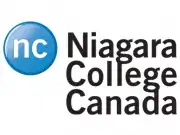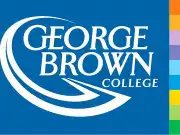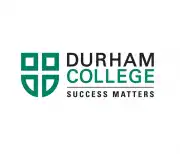Education programs in Canada for international students
- ASdvantages of Studying Education in Canada
- Formats and Levels of Education Programs in Canada
- Top Universities for Education Programs in Canada
- Additional Recommended Universities for Education Programs
- How to Apply for Education Programs in Canada
- Tuition Fees for Education Programs in Canada
- Scholarships and Grants for Education Programs
- Career Prospects After Studying Education in Canada
- Is It Worth Studying Education Programs in Canada?
- Frequently Asked Questions

Certificate - Pre-Community Services
Niagara College InternationalDo you enjoy assisting others and are interested in a career in community service but haven't decided on a specialty?
You have determined your career goal as a Pre-Community Services graduate and are well-prepared for academic success in postsecondary community service programs at Niagara…

Diploma - Early Childhood Education
Niagara College InternationalDo you care about education and the importance of fostering development in children's early years?
As an Early Childhood Educator, you promote early childhood learning in a variety of educational programs and settings.
Highlights
- With course work,…

Diploma - Educational Assistant and Adult Supports
Niagara College InternationalAre you driven to make a difference in the lives of people with special needs and to ensure that everyone achieves their full potential?
In this unique dual-focused program, you will be prepared for two career paths. You are skilled and compassionate in supporting students and adults with…

Diploma - Early Childhood Education
George Brown College of Applied Arts and TechnologyOne can earn a diploma in two years from George Brown College by enrolling in the Early Childhood Education (C100) program.
You will study the holistic development of a variety of age groups, including:
- infants (from six weeks)
- toddlers
- preschoolers
- school-aged…

Bachelor (Hons) - Behavioural Science
Durham CollegeThis multidisciplinary program is for you if you are interested in altering human behavior and helping people enhance their quality of life. Develop in-demand skills in adopting Applied Behaviour Analysis to serve persons with developmental difficulties or impairments across the lifespan, such as…

Diploma - Arts and Science (University Transfer)
Seneca College of Applied Arts and TechnologyThe University of Toronto (St. George or Scarborough), York University, and Trent University all offer accelerated four-year science degree programs that allow students to earn both a certificate and a bachelor's degree in just six years by enrolling in this two-year diploma program.
All…

Diploma - Early Childhood Education
Seneca College of Applied Arts and TechnologyYou will gain an understanding of children's physiological, mental, social, and emotional requirements over the course of a two-year certificate program. You'll learn the fundamentals of creating and delivering inclusive activities for kids of all ages, from the youngest to those in elementary school.
You…

Certificate - General Arts (English for Academic Purposes)
Seneca College of Applied Arts and TechnologyYou can earn a certificate in English proficiency in just eight months with this curriculum.
Courses in writing, reading, speaking, and hearing will aid your education. The curriculum emphasizes the use of technological tools to facilitate learning. After high school, you have the option…

Bachelor (Hons) - Child Development
Seneca College of Applied Arts and TechnologyOpportunities in the health, education, and social service fields are vast, and you can prepare for them by completing the four-year Honours Bachelor of Child Development degree program.
You will be prepared for work in fields like child and adolescent mental health, infant mental health,…

Certificate - Infant & Early Child Mental Health
Seneca College of Applied Arts and TechnologyIn just eight months, you can learn everything you need to know to become an expert in the field of mental health for babies and toddlers. Increase your employability by learning how to better the mental health of children and young adults.
To better assist young families and promote good…
Advantages of Studying Education in Canada
Canada holds leading positions among countries that receive thousands of international students annually. Programs in education are particularly in demand — both for future teachers and for researchers and specialists in educational technologies. In this article, we will explain in detail why Canada is the best choice for studying in this field, how to apply, the cost of education, which universities to choose, and what career prospects await graduates.
Canada is renowned for its high standard of living and progressive education system. Here are the main reasons why students from around the world choose this country for studying pedagogy and educational sciences:
- International recognition of diplomas.
- Modern teaching methodologies, including inclusive and distance education.
- Opportunities to participate in research projects and internships.
- Multicultural environment and support for international students.
- Legal permission to work during studies and after graduation (under the PGWP program).
- Strong academic connections with employers in Canada and abroad.
Canadian diplomas are valued in the USA, Europe, Australia, and Asia, providing graduates with broad career opportunities.
Formats and Levels of Education Programs in Canada
Programs cover all levels of training — from college diplomas to doctoral research.
Main Formats and Levels
- College Programs (Diploma, Advanced Diploma) — initial vocational training, duration: 1-3 years.
- Bachelor's Degree (Bachelor of Education, B.Ed) — fundamental higher education, duration: 4 years.
- Master's Degree (Master of Education, M.Ed; Master of Arts in Education) — specialization and advanced study, duration: 1-2 years.
- Graduate and Doctoral Programs (PhD in Education) — scientific research, duration: from 3 years.
- Professional Development Courses — short-term programs for practicing specialists.
Fields of study include pedagogy, educational institution management, teaching methodologies, inclusive education, developmental psychology, learning technologies, and educational research.
Top Universities for Education Programs in Canada
| University Name | Program Name | Cost for International Students (per year) | Ranking and Comments |
|---|---|---|---|
| University of Toronto | Master of Education (M.Ed) | from 31,500 CAD | Ranked among the top 30 global universities. Strong research focus and international recognition. |
| University of British Columbia (UBC) | Bachelor of Education (B.Ed) | from 43,000 CAD | One of Canada's best universities, ranked in the global top 50. Emphasis on innovation and environmental approaches. |
| McGill University | Master of Arts in Education | from 28,000 CAD | Prestigious university with strong English- and French-speaking communities. |
| University of Alberta | PhD in Educational Policy Studies | from 9,000 CAD | Strong research programs, top 5 in Canada. Broad prospects in the scientific field. |
| Western University | Bachelor of Education (B.Ed) | from 32,000 CAD | High positions in national rankings. Modern methodologies and internships in school institutions. |
Additional Recommended Universities for Education Programs in Canada
| University Name | Program Name | Cost for International Students (per year) | Ranking and Comments |
|---|---|---|---|
| University of Manitoba | Master of Education (M.Ed) | from 18,000 CAD | Practical orientation, affordable prices, programs for future educators. |
| Brock University | Bachelor of Education (B.Ed) | from 25,000 CAD | Popular among international students, special focus on school practice. |
| Lakehead University | Master of Education (M.Ed) | from 22,000 CAD | Programs for educators and specialists in inclusive and distance learning. |
How to Apply for Education Programs in Canada
The application process consists of several stages and requires thorough preparation.
Application Stages
- Choosing a university and program.
- Submitting an application through the university's official website.
- Gathering and submitting documents.
- Taking language tests.
- Completing an interview (if required).
- Receiving an invitation (Letter of Acceptance).
- Applying for a student visa.
Main Requirements and Documents
- High school diploma or bachelor's degree (depending on the program).
- Language test certificates: IELTS Academic, TOEFL iBT, or Duolingo.
- Motivation letter.
- Academic recommendations.
- Resume (for master's and higher programs).
- Portfolio (sometimes required for creative fields).
Additional Exams
- Some master's and research programs may require the GRE.
- Interviews are conducted online to assess motivation and preparation level.
Special requirements may include proof of practical experience, especially for teacher training programs.
Tuition Fees for Education Programs in Canada
Fees depend on the program level and specific university:
- Colleges and diploma programs: from 15,000 to 25,000 CAD per year.
- Bachelor's degree: from 25,000 to 45,000 CAD per year.
- Master's degree: from 18,000 to 35,000 CAD per year.
- Graduate programs: from 9,000 to 20,000 CAD per year.
Additional Expenses
- Accommodation: from 800 to 1,500 CAD per month.
- Food: from 300 to 600 CAD per month.
- Transportation: from 100 CAD per month.
- Health insurance: from 600 to 1,000 CAD per year.
On average, a student needs about 1,500 — 2,500 CAD per month for general expenses, including housing and food.
Scholarships and Grants for Education Programs in Canada
International students can apply for various types of financial support:
Types of Scholarships and Grants
- Academic Scholarships — for high academic achievements.
- Financial Aid — for students from low-income families.
- Motivation and Leadership Scholarships — based on personal achievements.
- University Grants — internal grants for students participating in research projects.
- Assistantship Positions — paid work as a teaching or research assistant.
Examples of Scholarships for International Students
- Ontario Graduate Scholarship — for master's and doctoral students, including international candidates.
- UBC International Graduate Scholarship — funding for master's students at the University of British Columbia.
- University of Toronto Fellowships — for PhD students, including international ones.
Criteria include a high GPA, test results, motivation, and recommendations. Deadlines vary by university and program, typically from November to March.
Career Prospects After Studying Education in Canada
Graduates of education programs are in demand in Canada and abroad. They can work in the following fields:
- Teaching positions in schools and colleges.
- Roles in educational administration.
- Careers in inclusive and special education.
- Consulting in educational policy.
- Research and scientific work.
Popular Employers
- Educational institutions across Canada.
- Ministries of education at provincial and federal levels.
- Private educational centers.
- International NGOs working in education.
- Research institutes.
There is particularly high demand for specialists in digital learning, inclusive education, and educational project management.
Is It Worth Studying Education Programs in Canada?
Canada offers an optimal combination of quality, safety, and prospects for students. Key advantages include:
- International recognition of diplomas.
- Strong academic programs.
- Access to research facilities.
- Opportunities to gain work experience and immigrate.
Compared to other countries (USA, UK, Australia), Canada stands out for its more affordable prices and stable visa policies.
Frequently Asked Questions
1. What language tests are required for education programs in Canada?
Most programs accept IELTS Academic, TOEFL iBT, or Duolingo.
2. Can I work while studying education programs in Canada?
Yes, international students can work up to 20 hours per week during studies and full-time during holidays.
3. Are there programs for future English teachers?
Yes, many universities offer programs for teaching English as a second language (TESL/TEFL).
4. What are the requirements for applying to a master's in education in Canada?
You need a bachelor's degree, proof of English proficiency, recommendations, and a motivation letter.
5. How much does a bachelor's in education cost in Canada?
The average cost ranges from 25,000 to 45,000 CAD per year.
6. What are the employment prospects after graduation?
There is high demand for education specialists, especially in inclusive and digital education.
7. Can students from CIS countries get scholarships?
Yes, academic scholarships and university grants are available for students from CIS countries.
8. Which Canadian universities offer the best education programs?
University of Toronto, University of British Columbia, McGill University, University of Alberta, Western University.